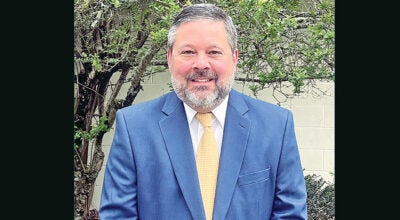Garvin loses appeal; conviction remains
Published 9:53 am Thursday, December 8, 2011
Convicted murderer Kara Garvin has lost her first bid to have her conviction overturned and get a new trial.
On Tuesday the Fourth District Court of Appeals rejected all four arguments Garvin’s appellate public defender presented in oral arguments this summer.
Garvin, originally from Franklin Furnace, was convicted in the shooting deaths of Ed Mollett, his wife, Juanita Mollett, and their daughter, Christina Mollett. The trio was murdered in their trailer on Snook Road in Franklin Furnace on Dec. 22, 2008.
The only eyewitness to the murders was the couple’s then 6-year-old grandson who testified at the trial that Garvin, now 32, was the shooter. The child had identified Garvin from a series of photographs Scioto County sheriff’s detectives presented to him.
A neighbor to the Molletts who placed the 911 call to authorities right after the shooting also identified Garvin as being at the Molletts’ home at the time of the murders.
The method law enforcement used to identify Garvin was among her attorney’s arguments for a new trial. Also raised in the appeal was that a change of venue for the 2010 trial because of pretrial publicity was refused and that the court and Garvin’s trial attorney did not inquire extensively or object to the seating of a juror who admitted she was related to the Scioto County sheriff.
Garvin contended that the way the sheriff’s office conducted the pretrial identification was suggestive, making those witnesses’ testimony unreliable.
However the appeals court disagreed saying by removing the child from the influence of his mother with the detective questioning him one-on-one made the child’s testimony valid. Also the court supported the choice of photos used in the lineup.
“The photos vary by perspective angle, relative distance from the lens and background color,” the decision states. “Since these characteristics differ amongst the photos, the differences between Appellant’s photos and the others do not draw unnecessary attention. Rather the fact that the Appellant’s photos differ from the others actually makes them similar to the others.”
On the count that excessive publicity denied Garvin a fair trial, the court ruled that “the initial (jury questioning) revealed the majority of the (prospective jurors) who did recall media accounts about the case were unable to recall specific details,” the decision states. “This is an excellent example of the effects of pretrial publicity dissipating before trial. It had been nearly 18 months between the incident and the trial. If the media had inflamed the community near the time of the murders, 18 months served well to squelch such sentiment.”
As to the charges that the juror who was a first cousin to Sheriff Marty Donini should not have been allowed to serve the court stated “we find the appellant’s argument unpersuasive.
“During the initial (jury questioning) the trial court raised the issue of (the juror’s) relation to Scioto County Sheriff. The court inquired how close the relationship was and she responded they did not see each other very often, save the occasional family gathering. … the flaw with the Appellant’s argument is that she has failed to demonstrate how the outcome of her trial would have been different had the trial court inquired further. … Appellant has provided no evidence (juror) was biased or prejudiced against her or that her presence on the jury affected the trial’s outcome.”
On the charge that Garvin’s attorney, Charles Knight, should have objected to that juror serving, the court ruled that his not doing so did not constitute ineffective counsel.
“Her counsel was vested with the discretion to decide what questions to ask the jury,” the court ruling stated. “As Appellant’s counsel had no obligation to ask particular questions, it follows there was no error when her counsel exercised its strategic discretion and did not ask particular questions of juror.”
The judgment was written by Appellate Judge Matthew McFarland.
Garvin’s mother, Audrey Dotson, continues to maintain that her daughter did not commit the crimes.
“The family expected this and that we know she is innocent,” Dotson said. “We are going to appeal. We will appeal this one way or another.”
This spring Dotson contacted the Innocence Project, a national organization that focuses on proving the innocence of those convicted through DNA testing.
“They said they would look at (the case) if she had one denial,” she said.





